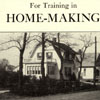 |
|
 |
|
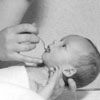 |
|
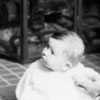 |
|
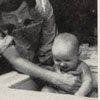 |
|
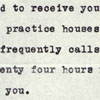 |
|
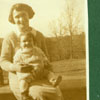 |
|

What Were Practice Apartments?
Beginning in the early 1900s, collegiate home economics programs across the nation included "practice house" programs designed to help female students learn "mothercraft," the scientific art of childrearing. At Cornell each semester, eight women students lived with a resident advisor in the "practice apartment," where they took turns performing a full range of homemaking activities in a scientific and cost-efficient manner.In 1919, the first practice baby, named Dicky Domecon for "domestic economy," came to Cornell. Cornell secured infants through area orphanages and child welfare associations. Babies were nurtured by the students according to strict schedules and guidelines, and after a year, they were available for adoption. Prospective adoptive parents in this era desired Domecon babies because they had been raised according to the most up-to-date scientific principles.
Flora Rose, an early proponent of the program, believed that babies were essential to replicate the full domestic experience. Albert Mann, Dean of the College of Agriculture, called the apartments "essential laboratory practice for women students." As time passed, however, new research in child development pointed to the need for a primary bond with a single caregiver, and social changes in the lives of women made the practice house focus on domesticity seem old-fashioned. In addition, the ideology most prominent in the college favored hard science over practical applications. By 1969, the college changed its name to the College of Human Ecology.
Select an image at left
or choose from the list below:
|
|||||||||
|
Copyright © 2001 Division
of Rare & Manuscript Collections For reference questions, send
mail to: rareref@cornell.edu
|
